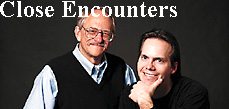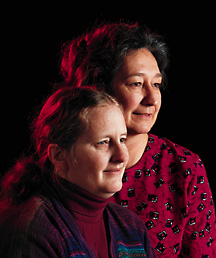

Elizabeth Van Volkenburgh, a professor of botany, is another believer in the benefits of undergraduate research. "Research experience is a better way to learn than just taking a course," she says. "Once students have hands-on experience, they will want to read and study about the subject--and not just so they can pass a test. Research can excite people."
Yet there is a flip side to having undergrads working in the lab, she points out.
"Having undergraduates involved in research is very time-consuming, inefficient, and will almost never yield publishable results," she admits, adding that in her field, it is difficult for students just starting out in college to have the background to make significant contributions in the scholarly press. With pressure on faculty to publish, often there isn't much time to bring new students to a higher level.

When Van Volkenburgh first heard McCormick's directive for undergraduate research, she wondered what kind of impact it would have on programs like hers. "I sometimes feel I don't spend enough time with undergraduates as it is, and when they are involved in research, they sometimes need hand-holding or explicit direction. That takes extra time and effort," she says.
And with the pressure to win grants and achieve significant results from research projects, she wonders if it would be better to have her graduate or postdoctoral students supervise undergraduates. "Having undergrads involved in research is a terrific teaching tool," she says, "but we also need to spend time and energy getting grants to fund our labs."
But there are benefits as well. "There is no denying that a research group does well to have young and old members. Young students ask naive questions--and many times, they are the most astute questions. It is very revealing."
She and her undergraduate research students have had some wonderful success stories. For example, there was the case of a student who was interested in becoming a teacher. She proposed developing botany experiments for high school biology classes. Van Volkenburgh and her student interviewed a Seattle high school teacher and found that it was too just difficult to mass produce enough experiments for a high school class.
"The project worked absolutely beautifully," Van Volkenburgh says. "The student came up with the idea and I just helped her when she needed it. The best part was we were able to present our findings to an audience of national high school teachers. It was a valuable, hands-on experience, and we were able to make something very important of the results. That's what counts."
So was the relationship she developed with another student, Anne Prather, a legally blind post-baccalaureate researcher.
A year and a half ago, Prather was in Van Volkenburgh's plant physiology class when she asked to participate in research activity. At first, Van Volkenburgh was worried that Prather's inability to see would prevent her from making significant research contributions. Van Volkenburgh had not worked with sightless people before. But she was surprised. Prather, who used a Mary Gates Fellowship grant to purchase a special microscope for sightless people, has had a positive impact on research efforts.
Prather, who is interested in genetics, has built a strong relationship with Van Volkenburgh, who knows less about it. "She is teaching me about genetics and how to work with people with disabilities. She is a wonderful person to work with, and I am learning from her a very different learning style. She encounters barriers but I encourage her to go on. I am inspired watching her deal with challenges, and that is rewarding," says the botany professor.
Adds Quinn: "Building good relationships with students is meaningful not in just what you can produce in terms of research, but because the both of you can learn so much. You get to share, you get to learn. And that is what it is all about." * Jon Marmor, `94, is associate editor of Columns.
Return to the Beginning of "Close Encounters"
Send a letter to the editor at columns@u.washington.edu.